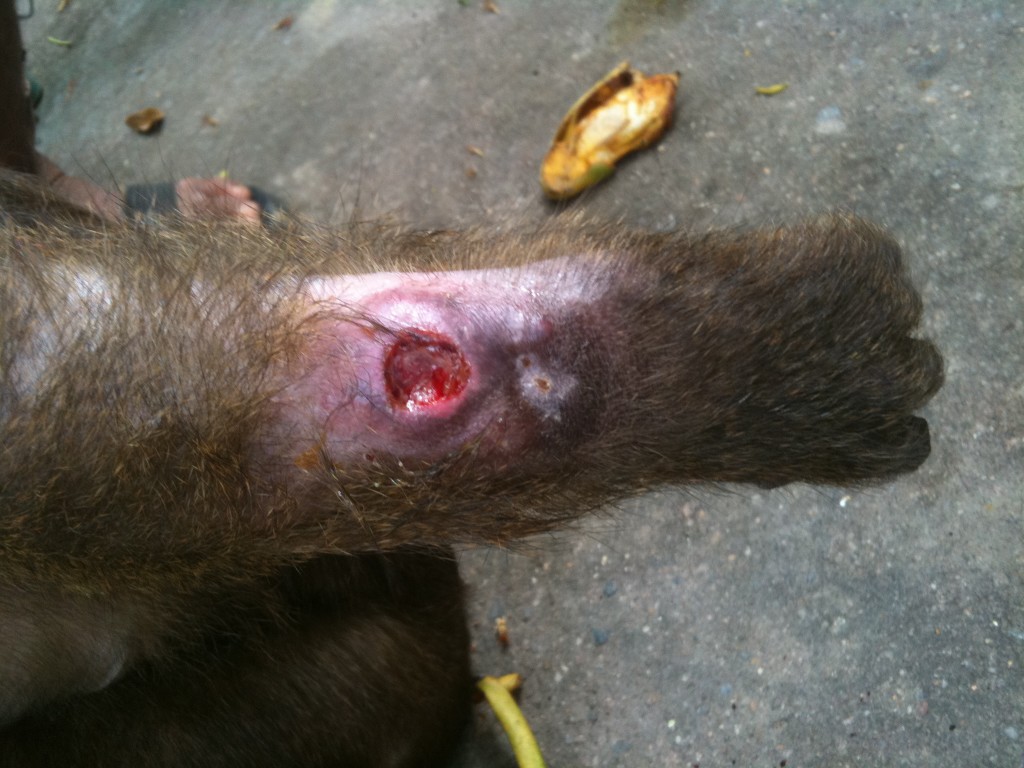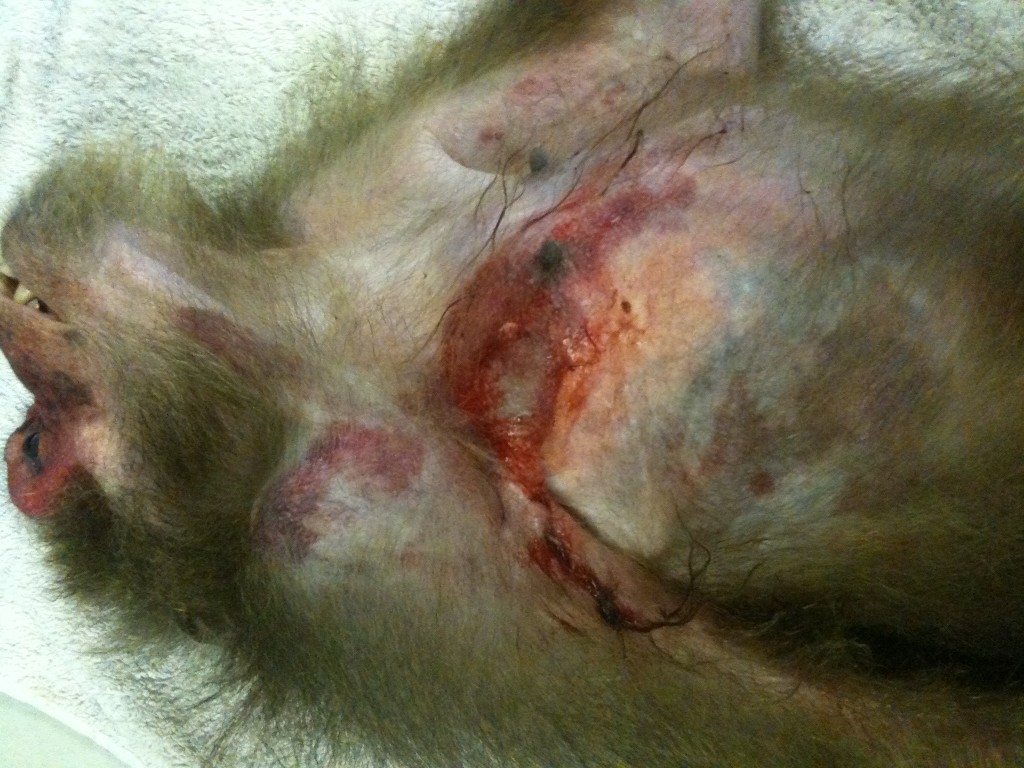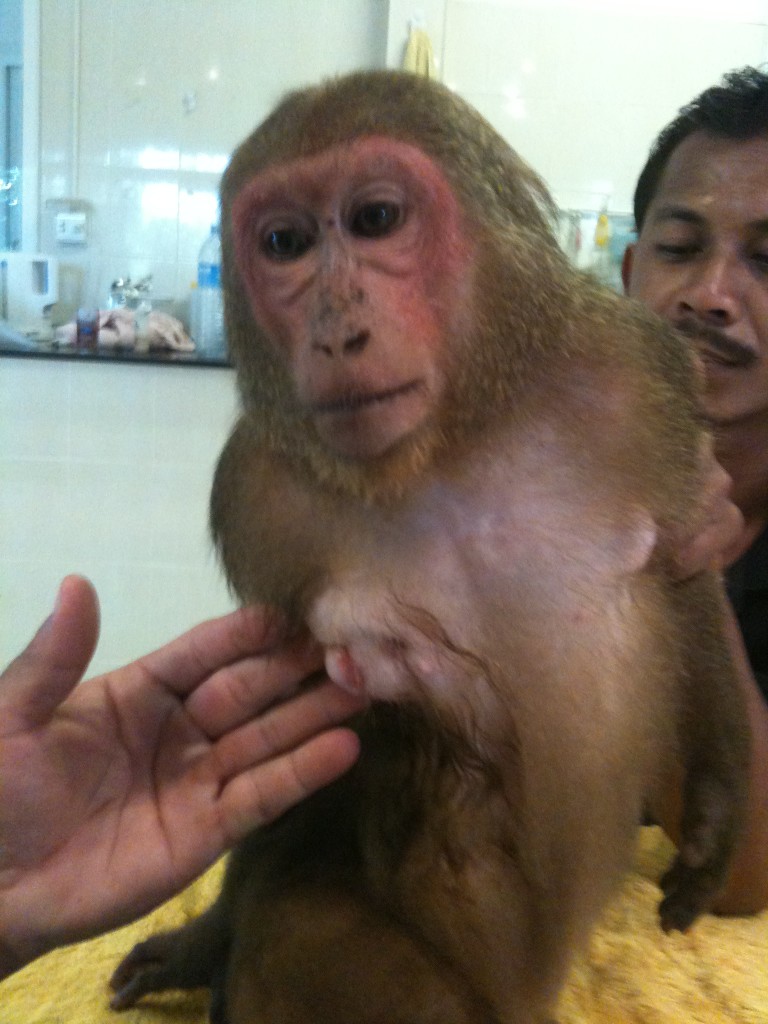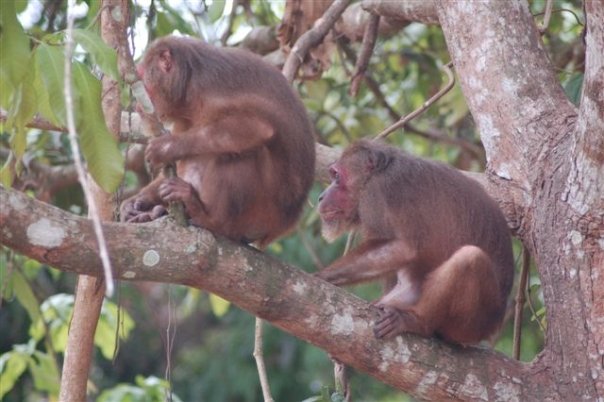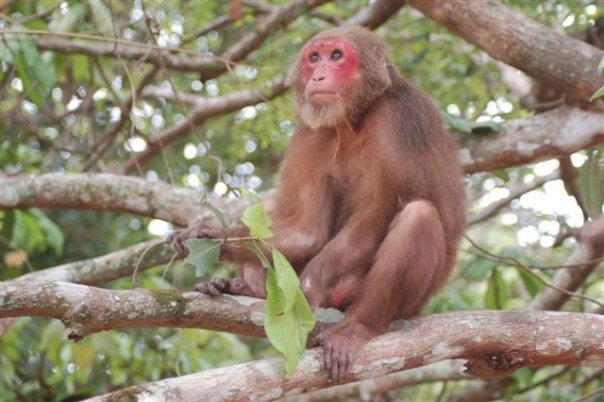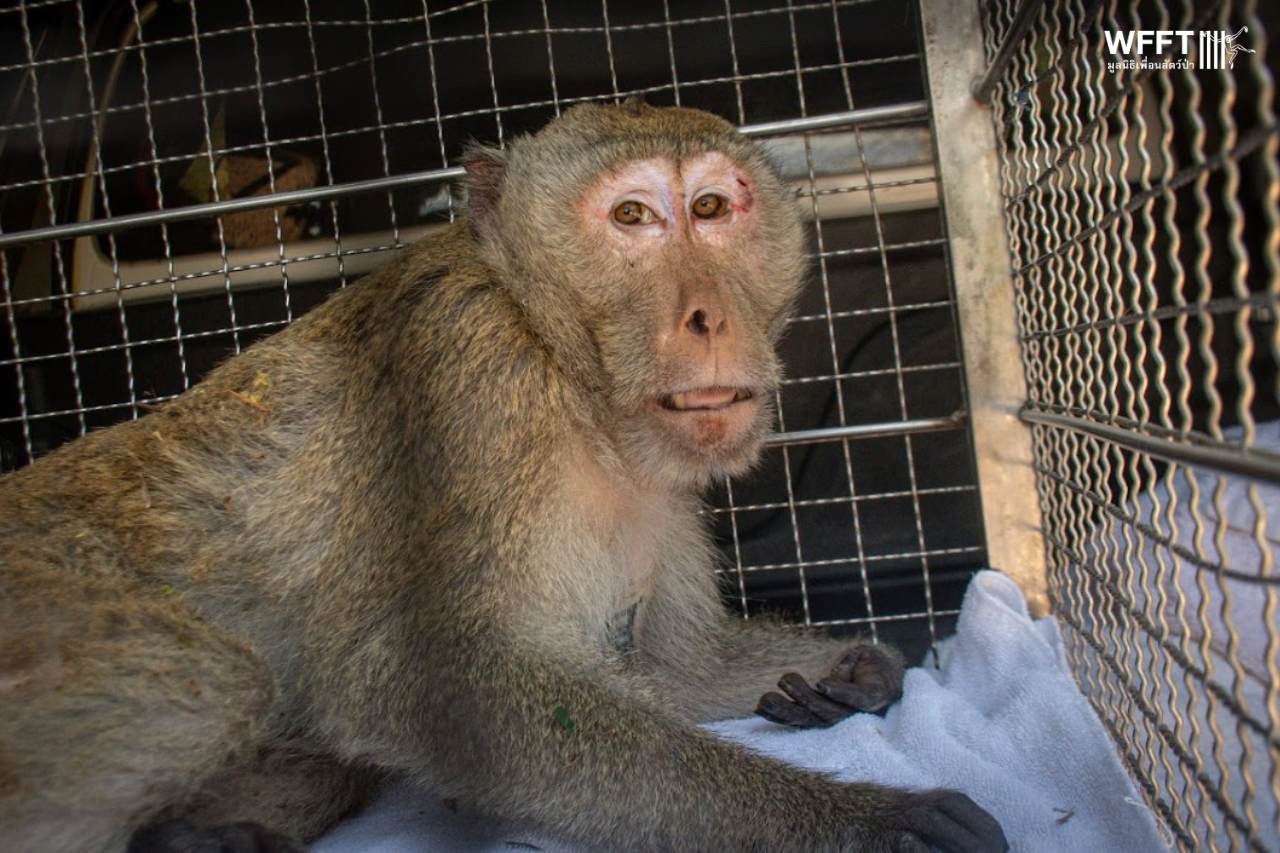It's time to take action—learn how you can help stop this exploitation and protect slow lorises from further harm.
Melioidosis treatment of macaques successful!
Successful treatment of Melioidosis infection in a group of 8 stump tailed macaques at WFFT
2012 brought challenging times for our veterinary team with the appearance of a serious bacterial disease in our resident group of stump tailed macaques. All 8 of our rescued stump tails were affected by the disease ‘Melioidosis’, a bacterial infection acquired from the soil in tropical regions which causes animals (and humans) to develop abscesses in the soft tissues, bones and organs accompanied by fever and weight loss. A few macaques had suffered from infected wounds over the preceding months but in February 2012, when illness started to appear with increasing frequency, a full investigation was warranted.
Months of blood tests, biopsies, Xrays and treatment trials were performed before the diagnosis was confirmed and the intensive treatment could begin. The group was placed in quarantine while our vets employed a human treatment protocol adapted slightly to reduce stress and side effects for our macaques. The macaques (and staff!) endured a grueling 2 months of 8 hourly injections followed by 6 months of oral medication. The clever, dexterous primate patient is one of the most challenging to medicate, especially over such a long period. Our medical staff had to continually invent new ways to trick the monkeys into taking their tablets.
Melioidosis is a notoriously difficult condition to treat so we were delighted after 8 months to see a 100% success rate. The final all clear came from the lab in February 2013 and the macaques could finally be reunited as a group in a new open field enclosure alongside 4 new arrivals of the same species. Tackling this challenging disease in a group of animals has given our vets a unique insight into the diagnosis and treatment of this debilitating disease in non-human primates. We are working on publishing a case study to help other wildlife vets manage future cases and will present our findings at the upcoming WARN (Wild Animal Rescue Network) international conference in Sabah, Borneo this October.

